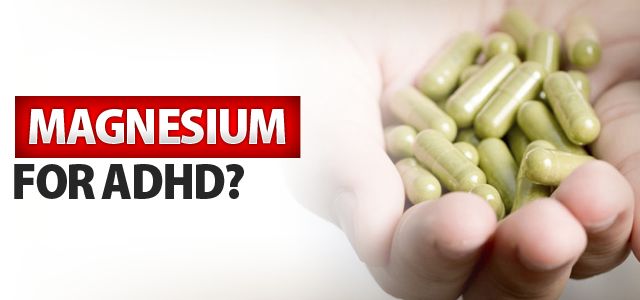
Magnesium is one of the most common deficiencies in children with attention deficit hyperactivity disorder (ADHD). Given that there is such widespread magnesium deficiency in ADHD, is it worth supplementing magnesium to hyperactive children?
As far back as 1997, a study of ADHD children found that magnesium deficiency was found in 95 percent of those children tested. Magnesium deficiency was found most frequently in hair (77.6 per cent), in red blood cells (58.6 per cent) and in blood serum (33.6 per cent) of children with ADHD. The conclusion from these investigations is that “magnesium deficiency in children with ADHD occurs more frequently than in healthy children.” Since then there has been the occasional review of magnesium and ADHD. Even though studies have shown magnesium to benefit hyperactivity, attention and anxiety in ADHD, the critical reviews focus on a long list of limitations to the studies. In one study in 2013, these included: magnesium not studied as a monotherapy (other supplements like zinc, B6 and iron may have also been given), lack of a control group, no testing of base levels of magnesium, dietary magnesium intake, kidney and liver function not assessed, comorbidities like autism and oppositional defiant disorder not assessed, etc. Part of the concluding remarks: “Therefore, till enough strong evidence is provided and safety concerns are removed, administering magnesium in children with ADHD and without hypomagnesium is not recommended.”
“Safety concerns” regarding magnesium – really? So let’s put these children onto stimulant medication with limited long-term safety data (some of which is coming out now) and documented side effects. More about the safety of magnesium later.
Even a 2015 review stated in their conclusion “One article was about magnesium mono-therapy and in two other articles magnesium and Vitamin B6 supplement were used together and their results showed B6 and magnesium can be effective in ADHD children with hypo magnesium. Hence, magnesium supplementation in children without hypomagnesemia is not suggested until enough evidence is provided.” So, two years down the track, at least some benefit of magnesium is being recognised.
The function of more than 325 enzymes are dependent on magnesium. Magnesium is involved in the formation of neurotransmitters including serotonin and dopamine. A recent Australian study looked at dietary magnesium intake and externalising behaviours (aggression, impulsivity, non-compliance, etc). “The study shows an association between higher dietary Mg intake and reduced externalising behaviour problems in adolescents.”
Most studies that look at magnesium, also include other supplements that work synergistically with magnesium. For example, vitamin B6 facilitates the production of serotonin, and supplementation with vitamin B6 has been shown to increase serotonin levels and reduce hyperactivity in ADHD. In one study, 40 children with ADHD were given magnesium (6 mg/kg/d) and vitamin B6 (0.6 mg/kg/d) for eight weeks. Almost all ADHD children showed an improvement in clinical symptoms, namely hyperactivity, aggressiveness, and inattention. Clinical symptoms returned a few weeks after treatment was stopped.
Calcium and magnesium work synergistically to relax the nervous system; deficiency symptoms include irritability, restlessness, fidgeting, muscle cramps, and twitches. Magnesium supplementation has been shown to reduce excitability and improve concentration in children with low serum- and RBC magnesium levels.
Safety of Magnesium
Magnesium supplementation is safe and effective, and it is critically important for children who are deficient. The safety of magnesium has been well established. There have been no deaths reported from magnesium supplementation. An overdose of magnesium may result in loose stools. This is temporary, and will go away once dosages are reduced or divided into smaller amounts of magnesium are given throughout the day. Magnesium supplementation is safe and it is worth trying, especially when we consider the dangers of ADHD drugs.
Sources of magnesium
Magnesium is available in many forms as tablets, capsules and powders as well as in multivitamin/mineral supplements and transdermal creams and oils. It is highly recommended to seek the advice of an experienced practitioner as to the type of magnesium supplement that would be suitable for your child. An experienced practitioner will also ensure that you are using the best quality product for yourself or your child.
Food sources of magnesium
To learn more about magnesium and the magnesium content of common foods, you may wish to visit the following website http://www.whfoods.com/genpage.php?tname=nutrient&dbid=75.



